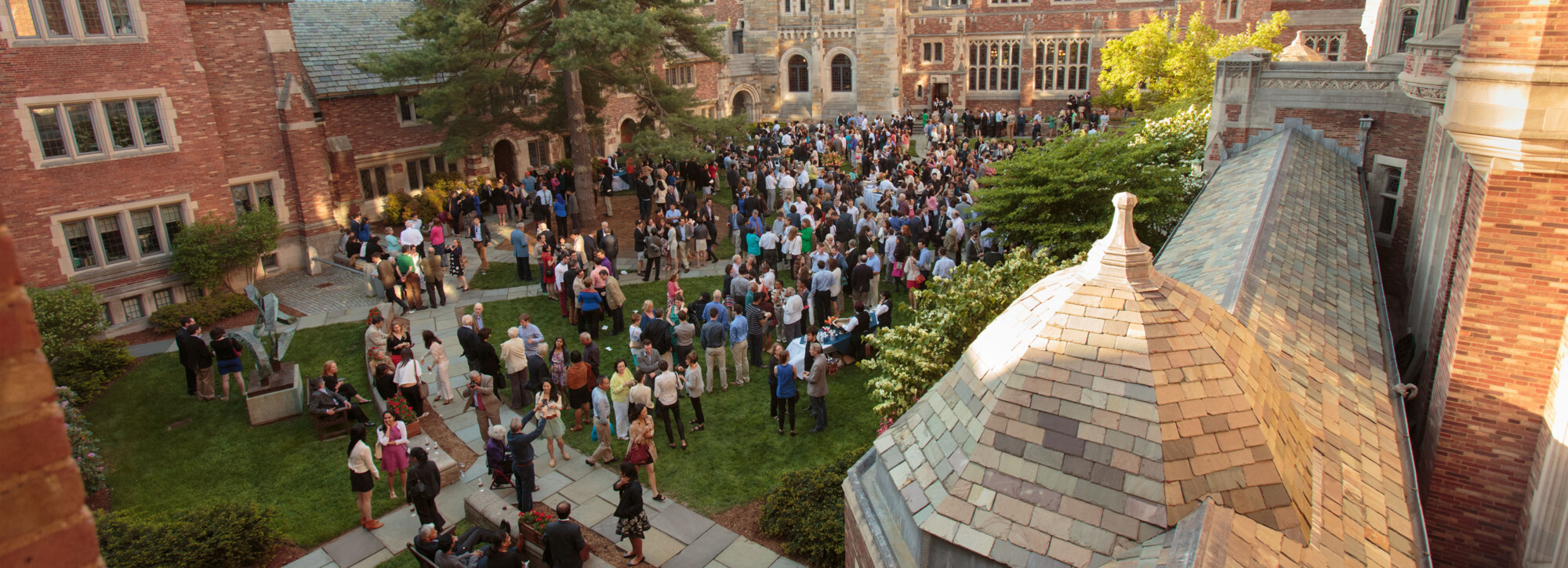
Andras Deak’s ’27 grandparents emigrated from Hungary to the United States in the 1950s, when the Soviet Union was suppressing the Hungarian Revolution. “They possessed a strong belief that democracy and its benefits were important to protect,” said Deak, who grew up in Somerset, New Jersey.
In part thanks to this legacy, Deak always wanted to join the military. But it wasn’t until several years after high school that the opportunity arose for him to enlist.
Initially, Deak had his sights set on Basic Underwater Demolition/SEAL training (BUD/S), but he didn’t pass. “It was really tough for me,” he said. “I always knew that was what I wanted to do, but when I got there, I didn’t succeed. I had to refocus.”
Deak became a gunner’s mate and joined a ship, where he found a new sense of purpose. His ship was deployed to the Persian Gulf in 2019 with the Abraham Lincoln Carrier Strike Group. During the nine-month deployment, the ship and its crew completed many assignments in contested shipping lanes, Deak said. One of the ship’s roles was escort duty, ensuring safe transit for not just military ships but also general shipping traffic across two narrow crossings.
Deak’s role involved maintaining the ship’s weapons as well as supervisory responsibility for the combat systems. This meant regular communication with both the officers responsible for the overall mission and the personnel who operated the weapons systems.
But another of his roles was the command fitness operation. Deak was selected for the job based on his excellent performance evaluations and underwent a training course administered by the Navy. On a ship, Deak said, it’s hard to maintain fitness — cardio exercise is difficult within a ship’s very limited bounds, and on a small ship, vigorous exercise can be compromised by waves or heavy weather. But fitness is essential for more reasons than one: at the time Deak served in the Navy, failing a biannual fitness test could mean probation for a sailor.
“If you failed one, you’d be assigned to a fitness enhancement program, where you do remedial workouts. But a lot of times, those programs are pro forma and not given a lot of attention,” said Deak. “If you failed a second fitness test after being assigned to that probation, your recommendation for promotion could be removed.”
Deak saw an opportunity to help sailors avoid failing their fitness tests by designing a remedial program that sailors could undertake even under deployment — a rigorous calisthenic regimen supplemented with rowing machines, balls and light weights. For both the standard and remedial programs, he incorporated many of the principles he’d learned at BUD/S.
“It was important to me for my coworkers and friends that they not lose their careers based on a fitness test,” he said. He also designed nutrition plans to complement the fitness program, based on the food that was readily available on board, and held sessions to talk about nutrition.
“Over the course of the deployment 98% of the sailors assigned to the program ended up passing the fitness test. I took a lot of pride out of that, especially considering the demanding nature of being on a ship,” he said.
When Deak was discharged from the Navy in 2021, he noticed other roadblocks standing in the way of his colleagues’ success.

“The military provides a lot of resources to help veterans readjust to civilian life, to go to school, and employment resources, but they don’t do a good job of explaining those to servicemembers,” he said. Small errors in paperwork can lead to veterans not being able to access necessary programs.
“I had a lot of friends who, on getting out of the Navy, had trouble accessing those programs and who were struggling,” Deak said. “When they sought help with their paperwork or legal assistance, they were either rebuffed or there was nothing there for them.”
Negative consequences in veterans’ lives can compound as a result of this systemic failure; one of Deak’s colleagues had encounters with law enforcement. Another one of his friends died.
Deak realized that the system wasn’t set up for veterans’ success. Later, when he had the opportunity to work for the U.S. Senate, many constituents confirmed to him that even when robust resources were available, lack of access meant veterans were unable to benefit from them. Deak began to think about attending law school as a way to help improve systems that were flawed.
“I wanted to ask how our institutions are designed, and who they’re trying to help,” said Deak. “The law is among the most important of those systems, because it shapes all the others. There’s a big focus on the systemic impacts of the legal system at Yale Law School and the normative considerations of how the legal system is designed, and I wanted to be a part of that.”
At Yale, Deak has found not just the intellectual space to ask these questions, but a “tight-knit community” that is geared toward mutual support.
“If a veteran is looking to find the same sense of community that really defines military service, that’s alive and well at Yale,” he said.
This is one of a series on the growing military community at Yale Law School, where veterans and service members comprise 9% of the class of 2027.
